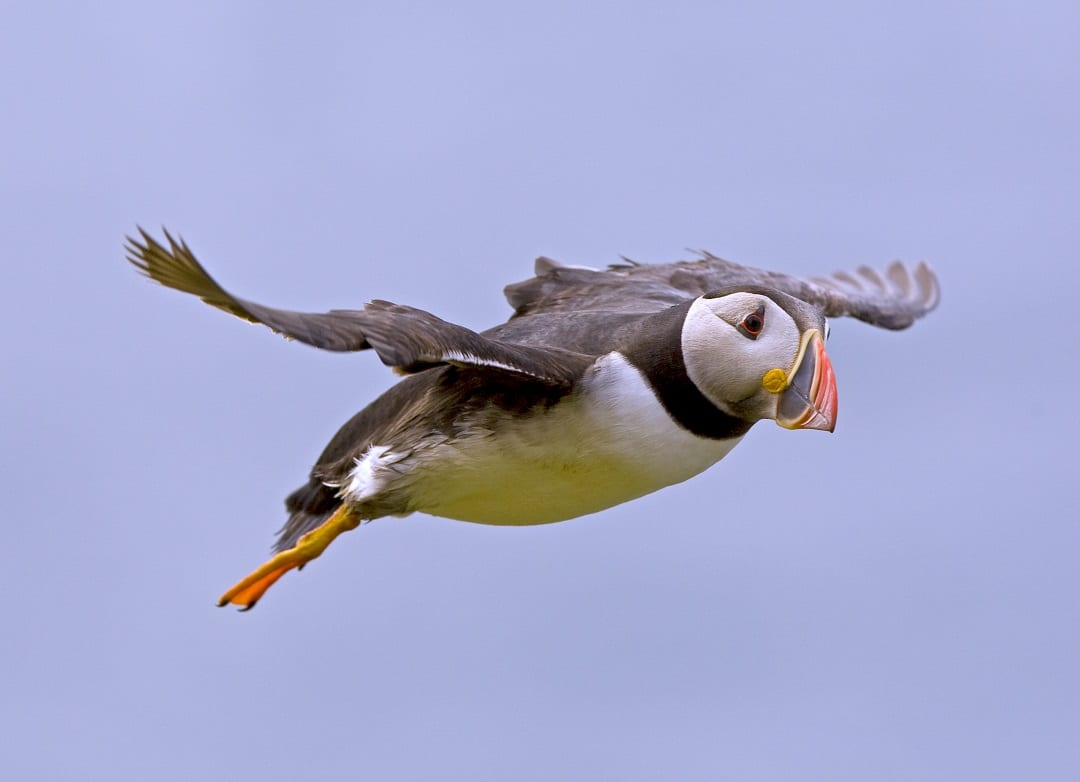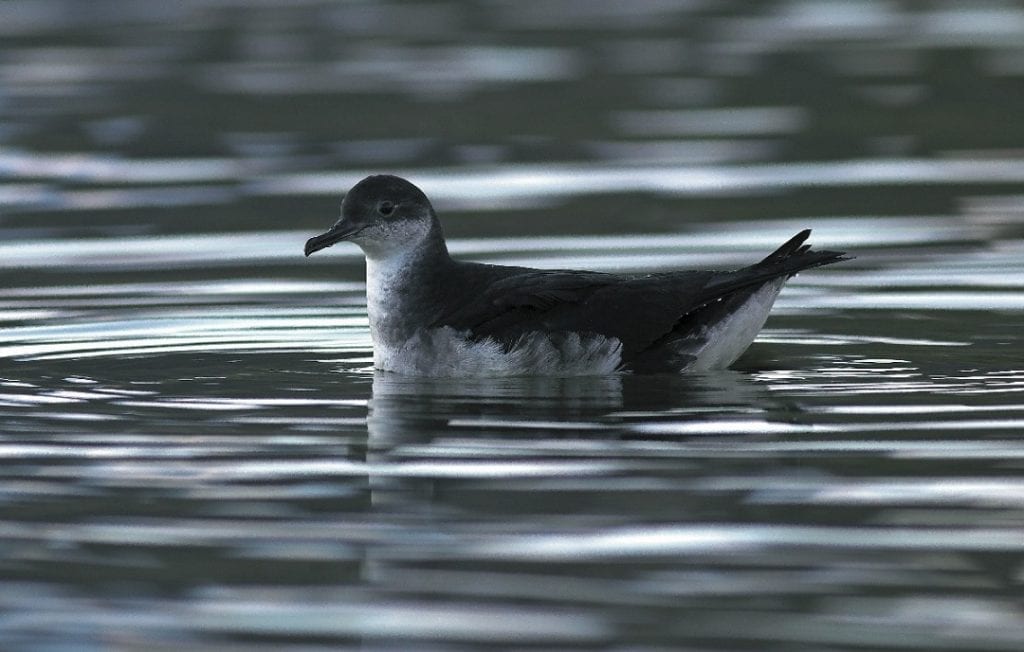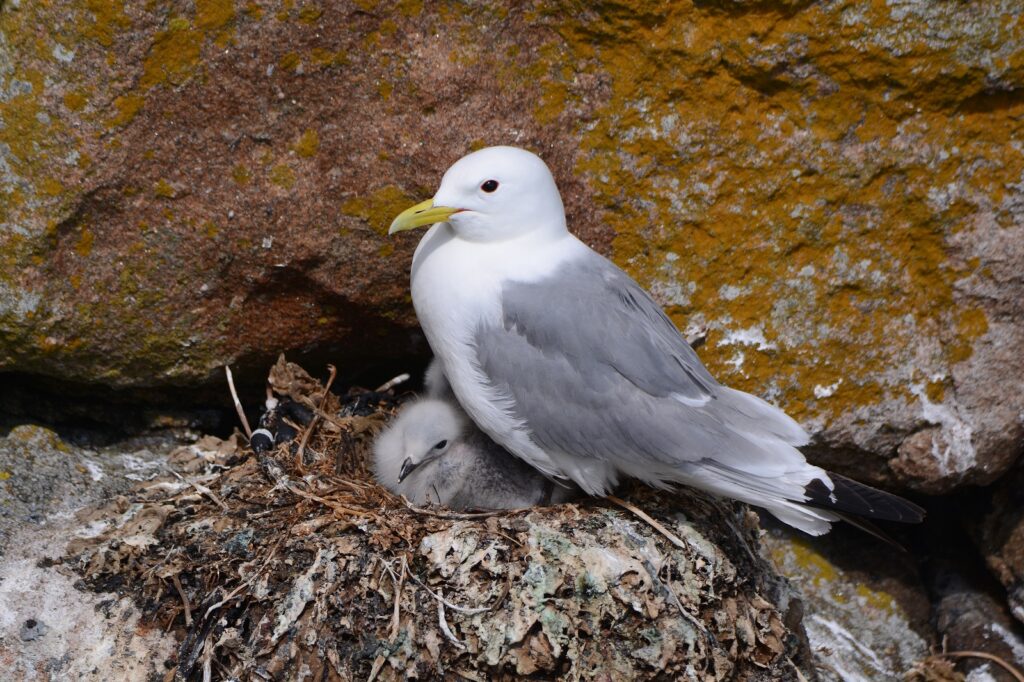Last year the Department of Housing, Local Government and Heritage held a public consultation on Marine Protected Areas (MPAs) and recently published an independent report summarising the 2,311 submissions received. So what does the Irish public think about expanding MPAs in Ireland?
The submissions revealed a remarkable 99% of respondents supporting MPAs and loud calls for urgent action to protect the marine environment. There were also clearly articulated concerns about the effects of offshore renewable energy (ORE) development on birds and cetaceans and calls for more protection through MPA designation. The independent report stated that “Submissions acknowledged the development of renewables as a force for good, but that their development should not come at the expense of vulnerable environments.”
Manx Shearwater: a long-distance migrant seabird for which Irish waters are of particular international importance
(Photo: Anthony McGeehan)
Migratory birds and sandbanks were called out as two such vulnerable receptors in the marine environment. Seabirds featured strongly in the 625 submissions that listed species or habitats that should be given greater protection. Regarding the proposed principles for MPA expansion, the report highlighted respondents’ suggestions that seabird migration and travel routes along with other environmental, traditional and cultural concerns be incorporated into the protection and restoration objectives of Irish MPAs. Protecting birds was the one of the top priorities when people described wildlife that needed to be afforded protection through MPA designation.
BirdWatch Ireland submission on expanding MPAs
BirdWatch Ireland also sent a submission to the MPA consultation. We are strong supporters of expanding the MPA network but how this is done is really important. We have seen utter failure to manage the Special Areas of Conservation and Special Protection Areas for birds on land and resulting degradation of these internationally important sites. We don’t need more paper parks that have legal designation on paper but are deteriorating in front of our eyes. MPAs will need robust management to protect and restore the marine ecosystem which is under a range of threats from climate change and warming waters, plastic pollution, offshore renewables development, mining and more.
Specifically in relation to seabirds we highlighted the gaps in the knowledge that must be filled. There are 24 breeding seabirds in Ireland and 23 are Red- or Amber-listed Birds of Conservation Concern. Kittiwake, Puffin and Razorbill have joined the Red list having previously been Amber-listed, with the Kittiwake and Puffin classed a globally Vulnerable. Among other things, more research is needed on seabird foraging areas and on seabird prey species so that we can better understand the ecology of these breeding seabirds in Ireland. While fully supporting the critical need for renewables to address the climate emergency, we must also tackle the biodiversity emergency. They are two sides of the same coin. In this regard we raised concerns around the placement of offshore wind energy in environmentally sensitive sites and solutions to this. We need a lot more wind energy in order to provide an alternative source of power to fossil fuels but the location of wind infrastructure must avoid adverse impacts to seabirds and other marine life too.
Kittiwake: along with the Puffin, now classified as Globally Vulnerable
(Photo: Brian Burke, taken under NPWS licence)
So What’s Next?
Submissions from the public suggested that “the MPA process should have scientific backing and be evidence based and clearly defined” and emphasised the importance of enacting legislation for MPAs.
BirdWatch Ireland is delighted to be involved in Fair Seas, a campaign to expand Marine Protected Areas (MPAs) in Ireland. Fair Seas aims to build a movement of ocean stewardship across Ireland, campaigning for ambitious and robust legislation, providing impartial scientific data and research, and securing a robust and ecologically coherent network of effective and well-managed MPAs in Irish waters. The Fair Seas team is made up of a number of partner organisations including BirdWatch Ireland, the Irish Environmental Network, the Irish Wildlife Trust, the Irish Whale and Dolphin Group, Friends of the Irish Environment, Coomhola Salmon Trust, SWAN and Coastwatch.
A Fair Seas report outlining areas of interest within Irish waters across a number of taxa groups (including seabirds, cetaceans, sharks, rays, commercial fish, and seabed habitats) will give a scientific underpinning to begin an evidence-based discussion on MPA expansion in Ireland.
Later this year, the Oireachtas will begin discussions on the draft legislation for MPAs in Ireland. This legislative foundation will be crucial to ensuring that Ireland develops a well-managed and ecologically coherent and connected network of MPAs, as we work towards the 30% MPA designation commitment by 2030.
To learn more about Fair Seas and to keep up to date with our work and Ireland’s progress in meeting its 30X30 commitment, you can sign up to the Fair Seas newsletter, or follow the campaign on Facebook – Twitter – Instagram – LinkedIn – YouTube.
References:
1. Department of Housing, Local Government and Heritage (2022) ‘Independent Analysis and Report on Marine Protected Area (MPA) Public Consultation Submissions’. 31 March.
2. BirdWatch Ireland (2021) ‘Public consultation on the MPA Advisory Group’s report entitled ‘Expanding Ireland’s Marine Protected Area Network’.
3. Gilbert, G, Stanbury, A., Lewis, L., (2021) Birds of Conservation Concern in Ireland 4: 2020–2026 Irish Birds 43: 1–22.




